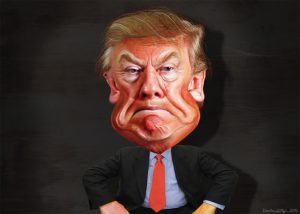Donald Trump and the Belief in Law
 Among Donald Trump’s many provocative statements, his recent claims that a specific federal judge with a “Mexican heritage” and Muslim judges in general would be biased against him have apparently struck a special chord. Even Trump’s fellow Republicans have been highly critical. Senator Mitch McConnell of Kentucky, for example, completed disavowed Trump’s claims, noting “All of us come here from somewhere else.”
Among Donald Trump’s many provocative statements, his recent claims that a specific federal judge with a “Mexican heritage” and Muslim judges in general would be biased against him have apparently struck a special chord. Even Trump’s fellow Republicans have been highly critical. Senator Mitch McConnell of Kentucky, for example, completed disavowed Trump’s claims, noting “All of us come here from somewhere else.”
Most of the criticisms deplore Trump’s lack of respect for American diversity and also his racism. House Speaker Paul Ryan said in this regard that Trump’s comments amounted to “textbook racism.” However, I wonder if some part of the strong negative reaction also relates to Trump’s challenge to an American belief in law and in the courts’ ability to apply law in a fair and objective manner.
I have argued in several of my writings that a belief in law should be recognized as an important tenet of American ideology, with “ideology” being understood as a normative expression of dominant beliefs rather than as a manipulative falsehood. Americans have traditionally believed in law, which is presumably understandable, made in public, and useful for one and all. In addition, law is supposed to be applied without bias, and independent courts in particular are expected to adjudicate disputes fairly and to decide similar cases in similar ways. “Ideologues” — that is, believers in and promoters of this ideology– routinely assure us that Americans live by the rule of law more so than any other nation.
